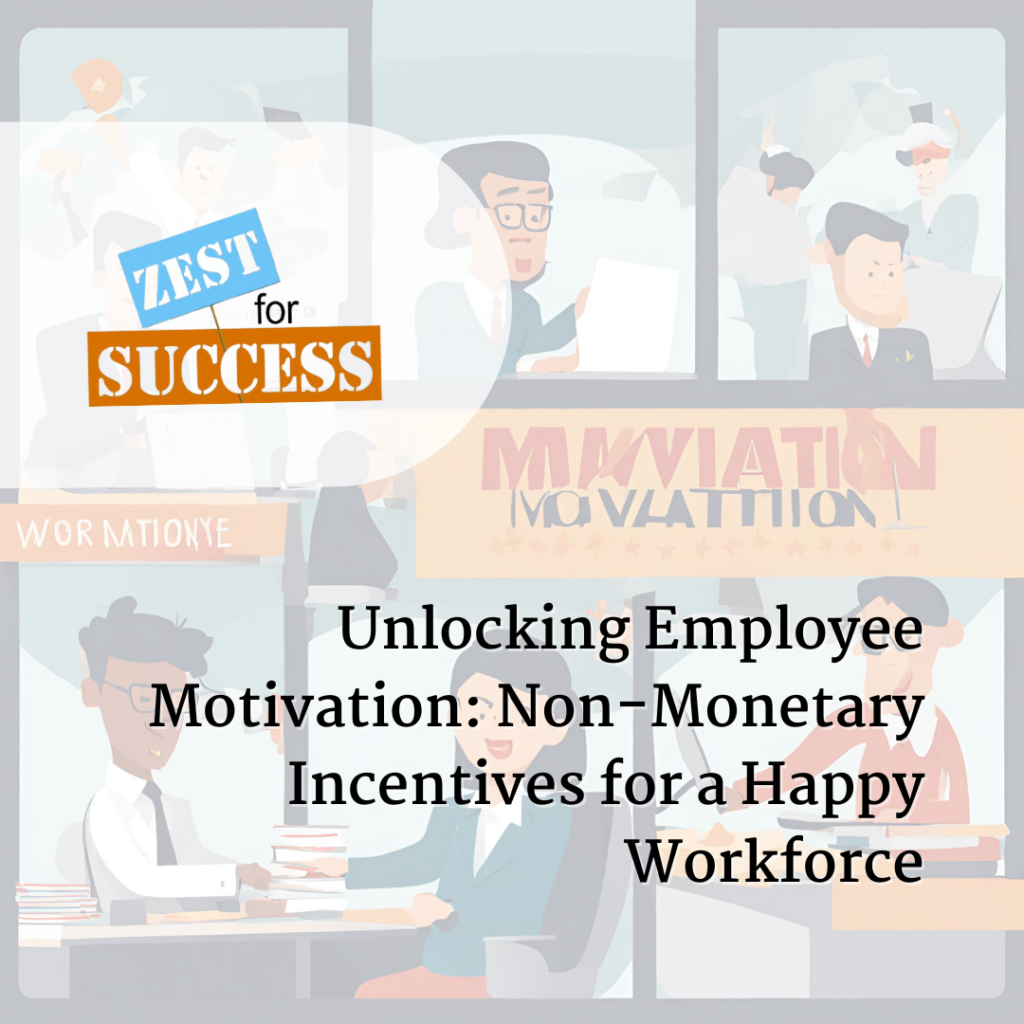In today’s competitive job market, attracting and retaining top talent is a constant challenge for businesses, especially when wage prices are soaring. While offering higher salaries may not be feasible for all employers, finding alternative ways to incentivise staff can make a significant difference in creating a content and productive workforce. In this blog, we explore the power of non-monetary incentives, focusing on flexibility, time-off policies, and personalised incentives that can drive employee satisfaction and loyalty.
- Embrace Flexible Work Hours:
One of the most impactful non-monetary incentives is providing employees with flexible work hours. Allowing individuals to adapt their schedules around personal commitments, such as avoiding peak traffic hours to manage school drop-offs or other responsibilities, can be a game-changer. Flexibility not only enhances work-life balance, but it also empowers employees to tailor their workdays according to their preferences, boosting their overall job satisfaction and loyalty to the company.
Employers should focus on the outcomes and deliverables rather than the hours worked. As long as the employees complete their required work hours (e.g., 38 or 37.5 hours per week), providing the freedom to manage their time can lead to a more engaged and motivated workforce. Recognising the diverse needs and responsibilities of your team members and accommodating them accordingly fosters a sense of trust and appreciation, which can result in increased productivity.
- Prioritise Time-Off and Family Matters:
Acknowledging that employees have lives outside of work is crucial for creating a supportive and compassionate work environment. Encouraging staff to take time off when they need it, whether for family events, personal well-being, or important milestones, demonstrates a commitment to their overall well-being. Time away from work can recharge employees’ energy, reduce burnout, and promote a healthier work-life balance.
By granting employees the freedom to take time off without facing undue scrutiny or guilt, businesses exhibit their understanding and compassion towards their workforce. When employees feel supported and valued in their personal lives, they are more likely to reciprocate with dedication and loyalty to their professional duties.
- Tailor Incentives to Individual Preferences:
Not every employee is motivated by the same incentives. Some may value time-off, while others might be driven by opportunities for career growth or recognition. To create an effective non-monetary incentive program, invest time in understanding what truly matters to each staff member.
Consider conducting one-on-one conversations to identify individual goals, aspirations, and preferred incentives. This could include allowing employees to earn additional time-off or offering opportunities to work on projects aligned with their interests and skill sets. For some, flexible work-from-home options might be a major incentive, while others might appreciate training and development programs that help them acquire new skills.
Incentivising employees goes beyond monetary rewards. Offering flexibility in work hours, accommodating personal needs, and tailoring incentives to individual preferences can create a more harmonious and motivated workforce. As an employer, fostering a culture that prioritises employee well-being and work-life balance leads to increased job satisfaction, higher productivity, and reduced turnover.
Remember, recognising and supporting your staff’s individuality and commitments outside of work not only strengthens their loyalty to the organisation but also builds a positive employer brand that can attract top talent in the long run. In today’s dynamic workplace, where employees seek more than just a paycheck, these non-monetary incentives can be the key to unlocking the full potential of your team and driving organisational success.

